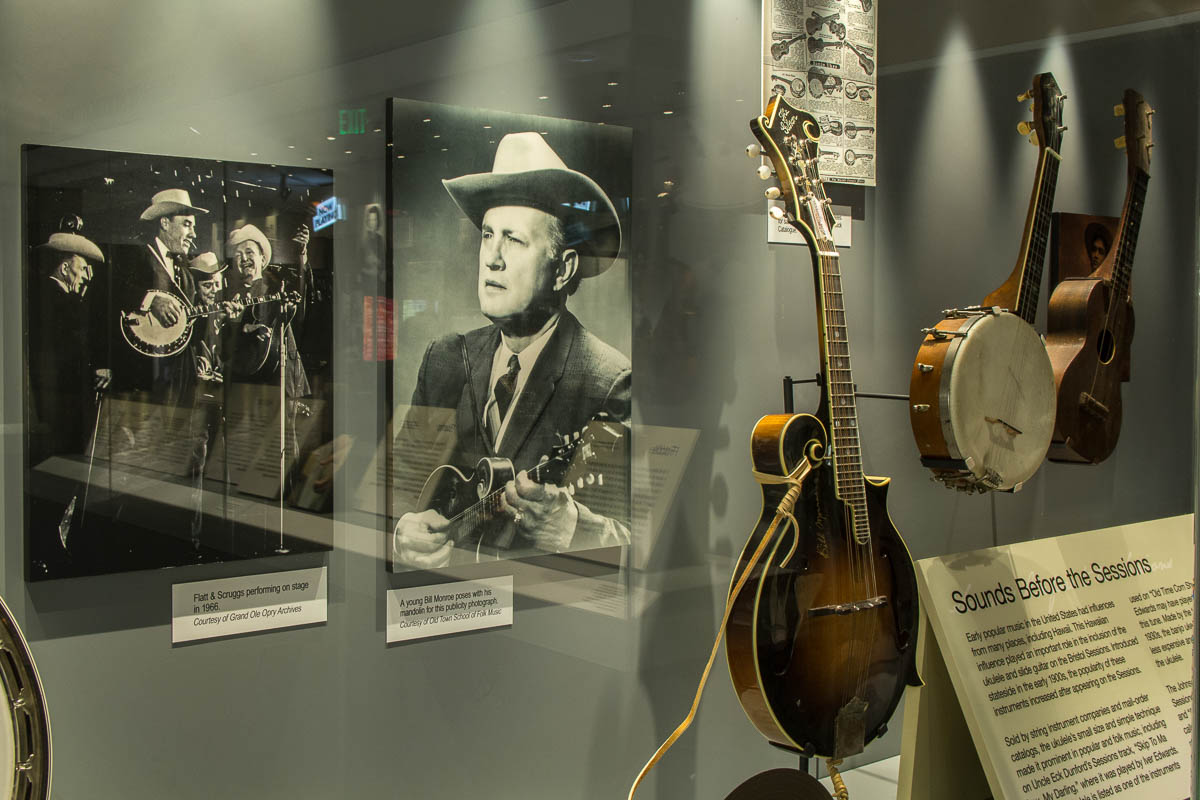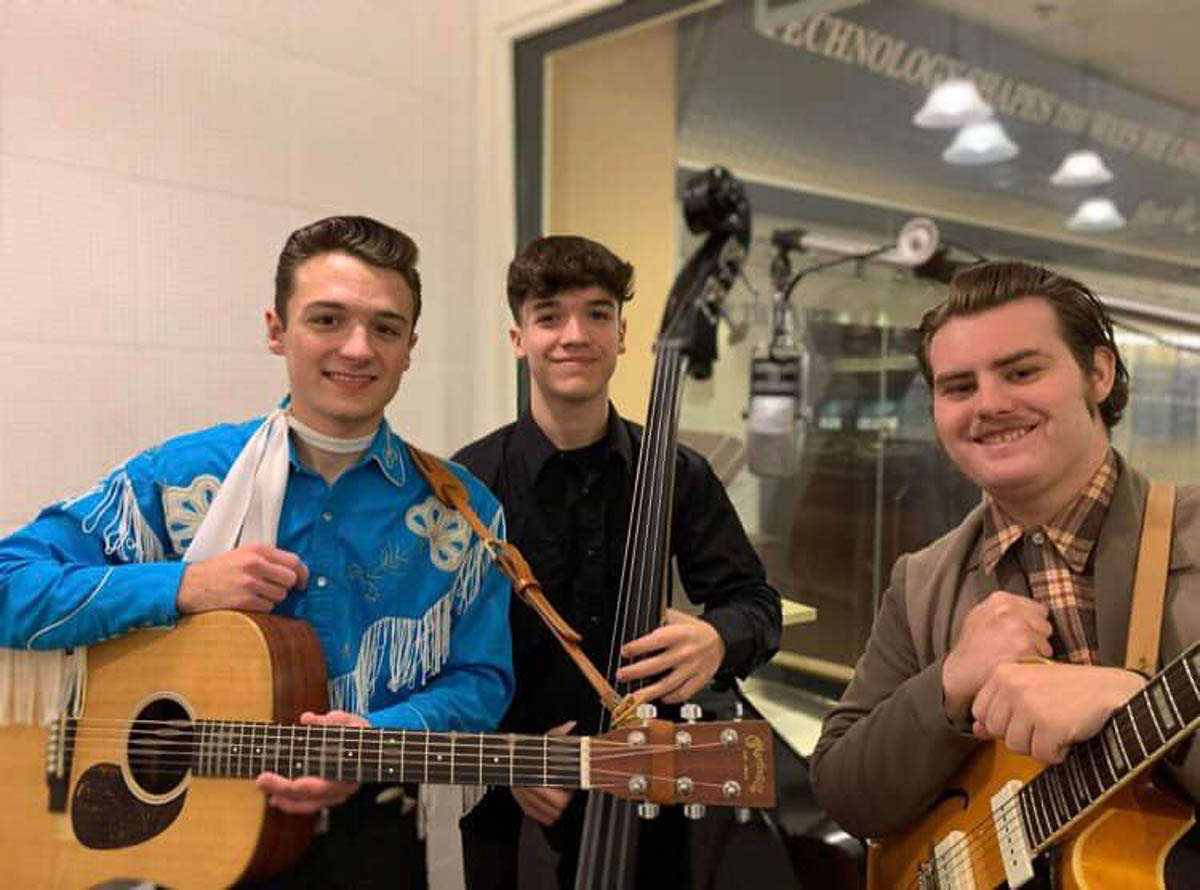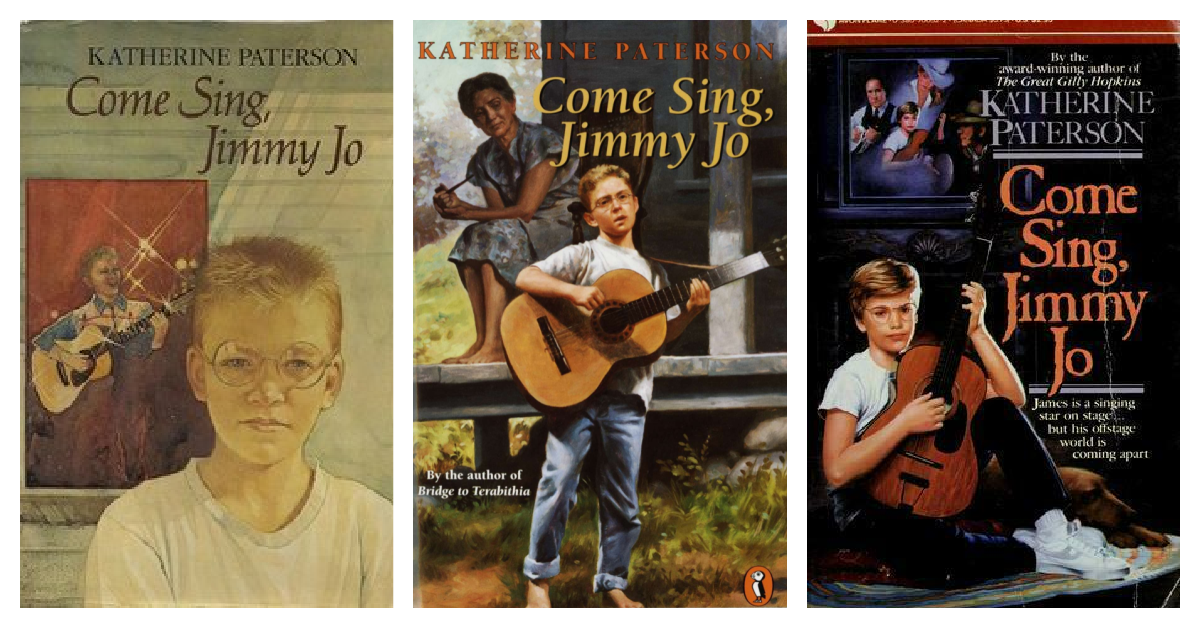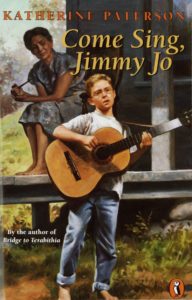“Instrument Interview” posts are a chance to sit down with the instruments of traditional, country, bluegrass, and roots music – from different types of instruments to specific ones related to artists, luthiers, and songwriters – and learn more about them. Several questions are posed, and the instruments answer!
Today I got a chance to have a talk with the mandolin, the instrument that puts the twang in country music.
So who are you, my friend?
I am the mandolin, a flat-backed, teardrop-shaped instrument, though there are mandolins with other shapes too. For instance, some mandolins have rounded bowl backs, and they are called the Neapolitan style. Another flat-backed style is the archtop mandolin, which includes extra scrolls and points on its body.
I have eight strings pitched in the high treble range – I’m sort of a small guitar with more strings. I’m often found in country songs, but I am particularly popular in bluegrass music where I take “breaks” to perform solo, highlighting the virtuosity of both me and my musician.
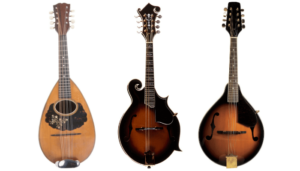
Three different mandolin shapes: bowl back or Neapolitan (left), archtop (center), and teardrop (right).
Image from promusicvault.com
What makes you different from a guitar?
I am different from the guitar in several ways including my size. I am about half the size of the guitar, but to make up for that I have two more strings than the guitar. I also am not particularly resonant, which is something the guitar is known for. Rather, my strings stop ringing and go silent almost as soon as they are played. I also sing higher than the guitar due to my smaller size.
When did you come to be?
Coming out of the lute family, I was originally created in Central Europe in the medieval period – I’m particularly associated with Italy. I came across to North America with immigrants. Country musicians used me in their performances, but I am especially associated with bluegrass and brother acts.
How are you played?
I am plucked like most stringed instruments, often using a plectrum, but what makes me interesting is I am almost always played with a tremolo technique, this meaning the player rapidly plucks a string to keep the notes going. This is what gives music like bluegrass its upbeat sound.
How do you sound and fit in a band?
Due to the rapid plucking, I am typically in the background as a rhythmic instrument meaning when I play my notes and chords, I am helping to keep tempo, like my friend the drums. As mentioned earlier, one place I really shine is when I get to play solos. Then you really get to hear what I’m capable of!
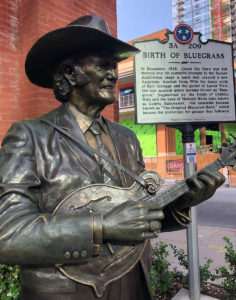
This statue of famous mandolin player Bill Monroe stands beside the “Birth of
Bluegrass” sign outside the Ryman Auditorium in Nashville, Tennessee.
Credit: © Brian Crawford, Creative Commons
What music style do you enjoy being in the most?
For me it’s got to be bluegrass. That’s where I got my start with players like Bill Monroe, and where I’ve continued to be a major player, for instance, with artists like Marty Stuart. I can be in fast string runs like in the opening of “Bluegrass Breakdown” and in solos like in The Chick’s “Traveling Soldier “and Darius Rucker’s “This.”
What are some songs we’d know with you in them?
Well, some of my favorites include “East Tennessee Blues” By Bill Monroe, “Rocky Top” recorded by the Osborne Brothers, and The Chicks’ “Long Time Gone.” What most people don’t know is I have also been played in rock-and-roll music, as well as in songs like “Going to California” by Led Zeppelin and “Boat on the River” by Styx!
And finally, do you have anything you’d like to add?
Yes, if you see me in live music or hear me on the radio, be sure to notice how I am either keeping the rhythm or playing a sweet Bill-Monroe-style solo. It will be music to your ears!
Thank you so much! Have a great day!!!
Logan King is a History Education major and Music minor at Western Carolina University. He is from China Grove, North Carolina, about forty-five minutes from Charlotte. He enjoys the outdoors and music, and is passionate about education. He has been listening to country and folk music all his life; favorite artists include George Strait and Ronnie Milsap. He plans to graduate in the fall of 2023 and is so excited to have helped out at the Birthplace of Country Music Museum by interviewing the mandolin for today’s post!


